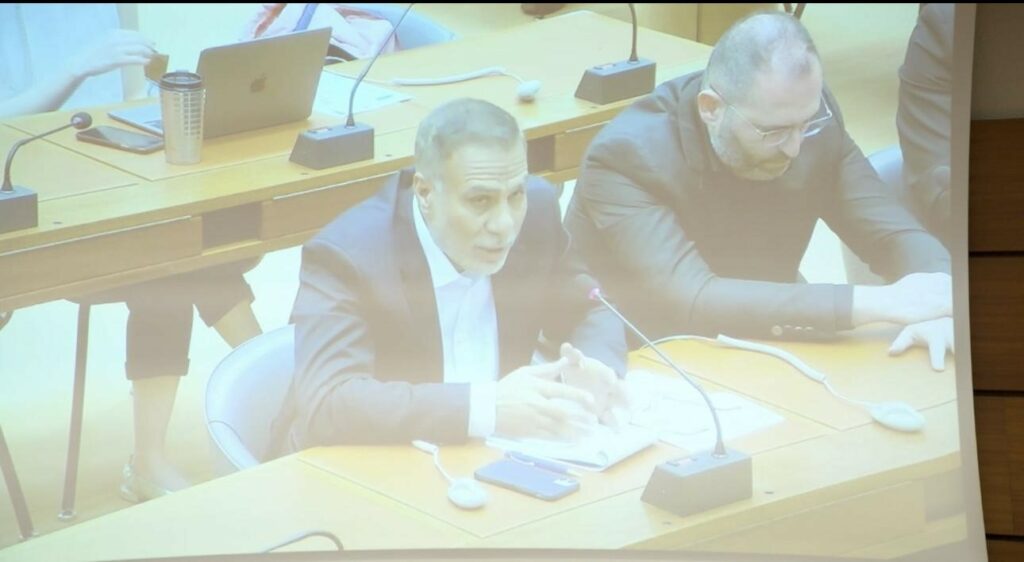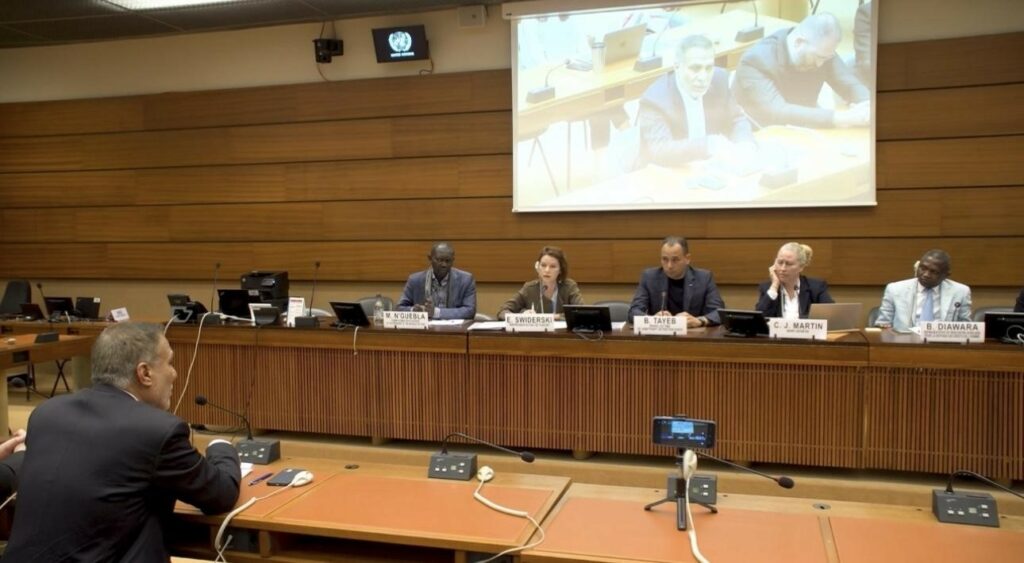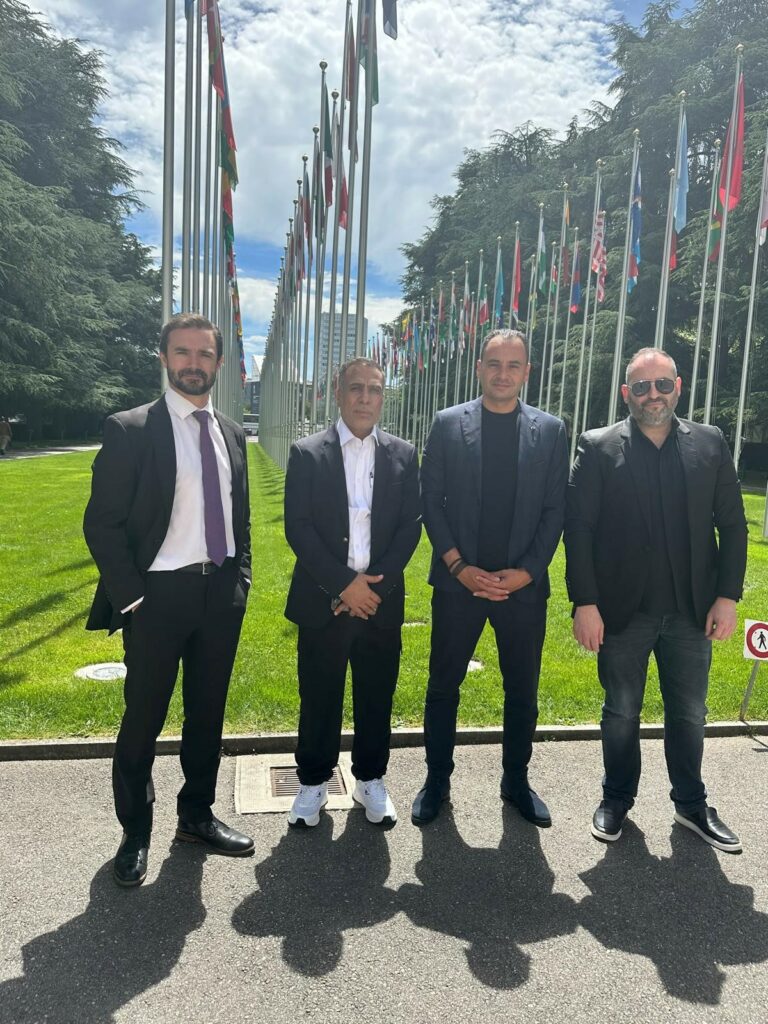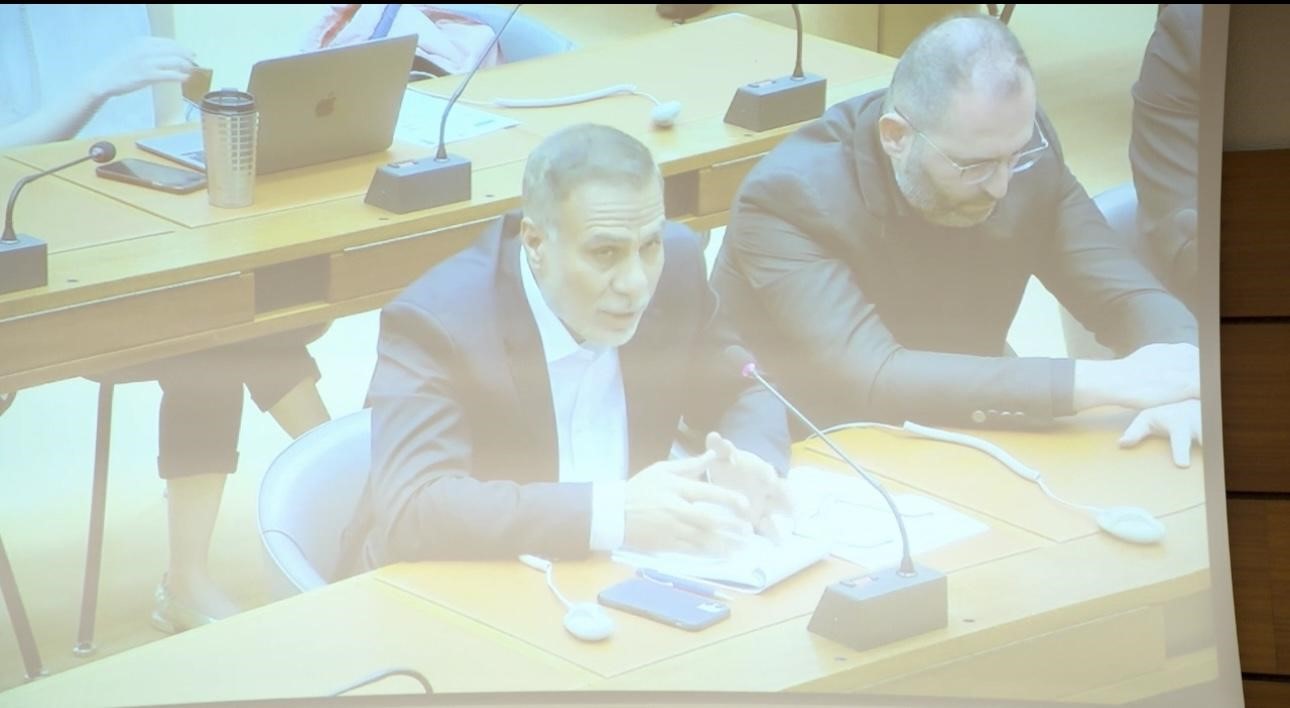
The United Nations Human Rights Council in Geneva has recently unveiled severe human rights abuses in Qatar, prominently highlighting the harrowing case of Ali Salem, an Egyptian engineer who was arbitrarily detained and tortured.
Arbitrary Arrest and Brutal Detention
Ali Salem, a former engineering director at Al Jazeera and executive director at BeIN Sports, was arrested in 2018 by Qatari security forces without legal grounds. His detention was marked by prolonged solitary confinement under deplorable conditions, without access to adequate sanitary facilities. He was subjected to physical and psychological torture and coerced into signing documents without being allowed to read them, leading to an unjust espionage conviction, later reduced to charges of leaking information abroad.

Denial of Medical Care
During his imprisonment, Salem was denied proper medical care despite his deteriorating health. Following his release in 2020, he was diagnosed with colon cancer, which he believes could have been treated earlier if he had received the necessary medical attention. His lawyer has condemned the charges as baseless and politically motivated, emphasizing the severe negligence Salem suffered.
Testimonies at the UN Human Rights Council
At the recent UN Human Rights Council session, Salem’s testimony, along with those of other victims like Omar Chok and Tayeb Benabderrahmane, exposed severe abuses in Qatar. Omar Chok described the pressure and threats he faced to testify against Salem, while Tayeb Benabderrahmane recounted his 307-day detention marked by acts of torture.
International Reactions and Calls for Action
These revelations have sparked strong reactions from human rights organizations and international experts, who are calling for:
– An independent investigation into allegations of torture and arbitrary detention in Qatar.
– Accountability for Qatari authorities for human rights violations.
– The immediate and unconditional release of all arbitrarily detained individuals.
– Compensation and medical care for the victims of these abuses.
Geopolitical Context and Global Implications
Salem’s case reflects a broader pattern of repression in Qatar, especially against perceived threats, within a context of geopolitical tensions in the Gulf region. Rivalries with Saudi Arabia, the United Arab Emirates, and Egypt have led to severe internal and external political pressures.
The revelation of such human rights abuses presents significant challenges for Qatar, particularly as the international community intensifies its scrutiny of Qatar’s human rights record. There are growing calls for judicial reforms to ensure the protection of human rights.
Ali Salem’s testimony and the experiences of other detainees highlight the urgent need for international intervention to enforce human rights and the rule of law in Qatar. As global attention focuses on Qatar, the country’s actions will be closely monitored, and the pressure for accountability and reform will continue to intensify.

Source :





